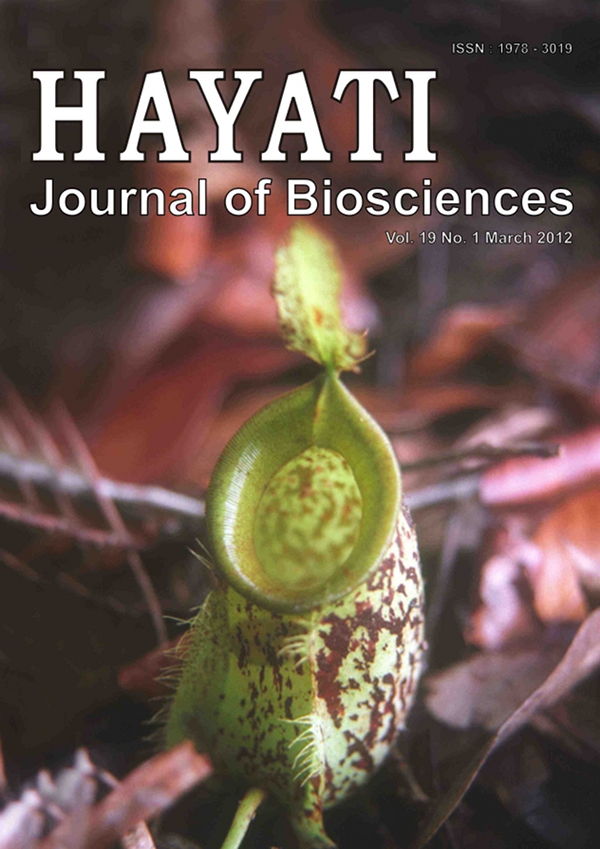Isolation and Identification of Transforming Growth Factor β from In Vitro Matured Cumulus Oocyte Complexes
Abstract
Transforming growth factor-β (TGF-β) is a two-chain polypeptide with molecular weight of 25 kDa which takes significant role in the steroidogenesis process. In the ovarian oocyte in particular, TGF-β has an important role in regulating reproductive function. TGF-β represents a key intrafollicular protein that regulates follicle development and aromatization process. The purpose of this research was to characterize and identify a protein fraction of TGF-β from the bovine isolated oocytes, which is synthesized during in vitro oocyte maturation process. Oocytes were collected from follicles with diameter of 3-8 mm. Oocytes were then matured in TCM 199 media supplemented with 5 μg/mg LH, 3% BSA, and 50 μg/ml gentamicin sulfate, and cultured in CO2 incubator (5%, 38.5 oC) for 20 hours. TGF-β receptors were identified immunohistochemically. Characteristics of the TGF-β protein were determined using SDS PAGE and TGF-β specification was tested using Western Blotting. The results showed that TGF-β receptors were identified and found in cumulus oocyte complexes (COCs). TGF-β protein was isolated from bovine oocytes with molecular weight 25 kDa and it was identified by Western blotting methods in the same molecular weight.
Downloads
HAYATI J Biosci is an open access journal and the article's license is CC-BY-NC. This license lets others distribute, remix, tweak, and build upon author's work, as long as they credit the original creation. Authors retain copyright and grant the journal/publisher non exclusive publishing rights with the work simultaneously licensed under a https://creativecommons.org/


















.png) IPB University
IPB University Department of Biology
Department of Biology The Indonesian Biological Society
The Indonesian Biological Society 

